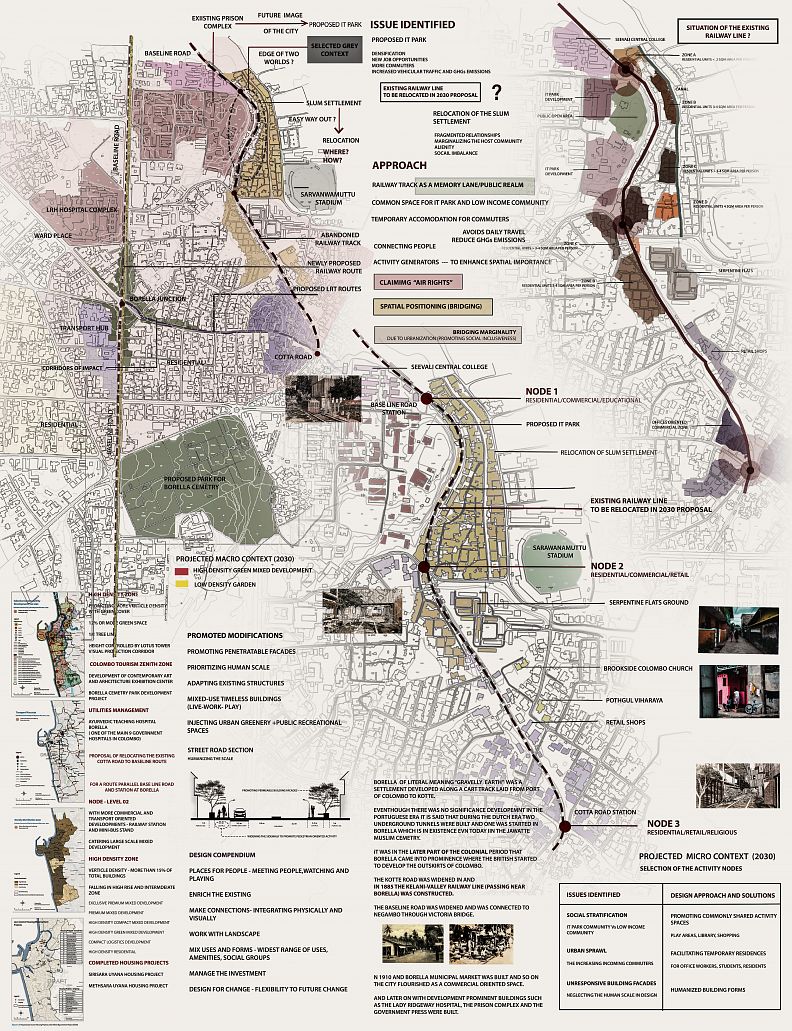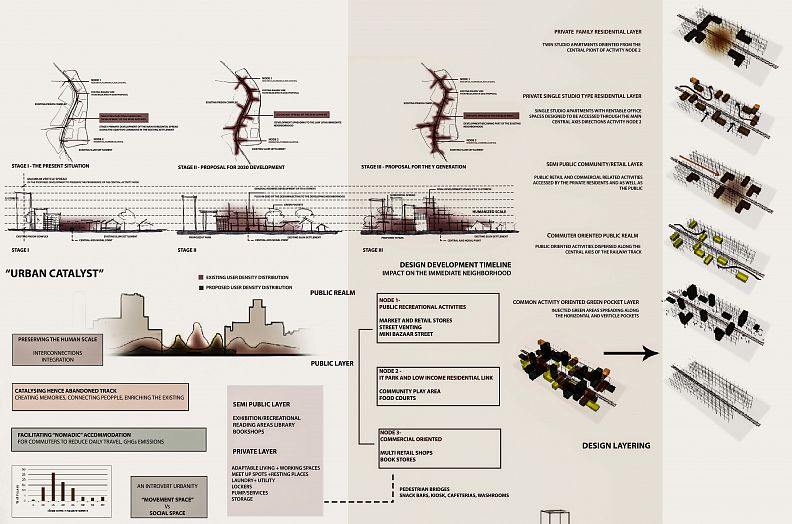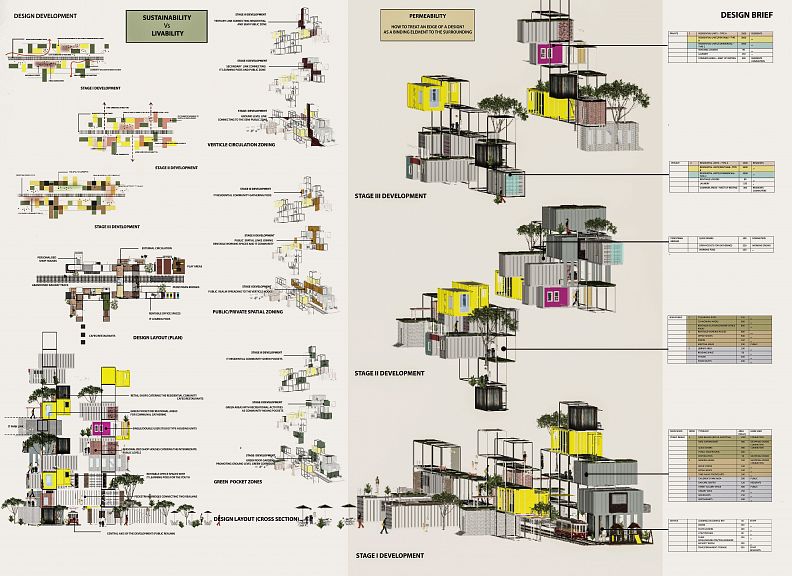"Out of Thin Air" - Bridging Communities for Inter-generational Equity

Project idea
The 21st century, a time of great change where cities in developing countries envision to reach the sky consequently creates a gap between communities labeled as “under-served”. Mostly in developing countries like Sri Lanka these so- called undeserved communities become marginalized and as a result will be left to its own devices. As an initiative to address this evolving crisis a design plug-in model is developed to bridge the cornered communities in the context of the rapidly urbanizing city of Borella in Sri Lanka.
Project description
The existing abandoned railway track is used as a memory lane and a common space for connecting the under-served communities and the commuters. Additionally temporary accommodation is provided for the commuters to avoid daily travel to reduce GHGs emissions and community pockets are plugged in as activity generators to achieve the idea of bridging the marginalized communities.
Technical information
The design is done is three stages for gradual change as a catalyst for the existing community. The idea was to preserve the human scale through interconnections and integration. The abandoned track was integrated into the design to connect people and to enrich the existing situation. The 'nomadic' accommodation is provided through claiming the air rights to minimize traffic and daily travel.




